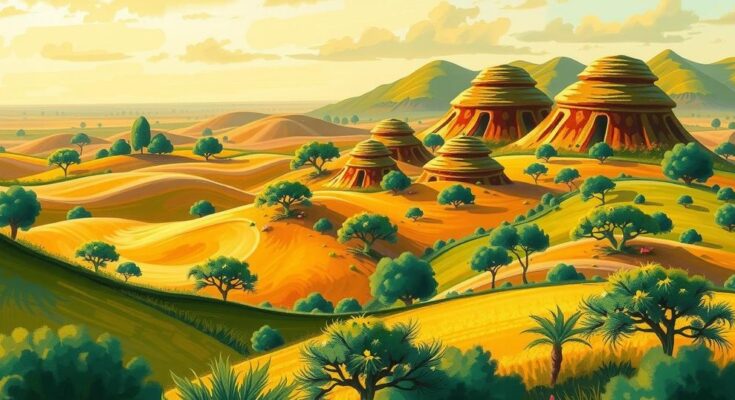Mauritania aims to join major fresh produce origins due to its extensive agricultural potential and need for self-sufficiency. Aichetou Taffa emphasizes the importance of welcoming investors and developing export capabilities. The country has made strides in agricultural development, focusing on horticulture while promoting participation in international markets. Foreign capital and expertise are being targeted for enhancing local production.
Mauritania, a vast country in northwest Africa covering one million square kilometers, seeks to establish itself as a significant source of fresh produce. This ambition stems from the country’s abundant untapped resources, the necessity for self-sufficiency, and a strong commitment to agricultural development. Aichetou Taffa, the Director of Agricultural Investment and Export Promotion at the National Society for Rural Development, champions this vision.
Aichetou Taffa asserts, “There is a strong appetite to invest in agriculture in Mauritania. My country is endowed with vast arable land, enormous water reserves, and a diversified climate that supports various crops. The national efforts are underway, led by the government and Sonader, focused on preparing the ground to welcome investors.”
Historically, Mauritania has been recognized in the global fresh produce market primarily for its watermelons, which arrive in Europe early in the season. Aichetou notes that this success has led to pioneering efforts within the watermelon and melon sectors, encouraging foreign investments from countries such as France and the UAE. He emphasizes, “The Mauritanian alternative can become a serious and reliable source for many necessary products, including early vegetables and fruits.”
Highlighting the critical role of horticulture, Aichetou explains, “We prioritize horticulture as it is essential for our food security. However, the local market’s limitations necessitate a focus on exportation, providing a pathway for Mauritania to position itself competitively alongside regional agricultural leaders such as Morocco and Egypt.”
According to Aichetou, Mauritania has made significant advances in agricultural development for export. Key projects include extensive upgrades to the port of Nouakchott, significant reclamation of arable land, and improvements in irrigation infrastructure. He states, “We also coordinate Mauritanian exporters’ participation in major trade fairs to raise awareness of our agricultural origins.”
Aichetou concludes by stating that investors from countries including Morocco, the UAE, France, and Sudan are already producing fresh produce in Mauritania. The nation is eager to expand its agricultural base, identifying priority crops where technological contributions and expertise are essential to future success.
In summary, Mauritania is poised to enhance its agricultural sector and emerge as a key player in the global fresh produce market. With its vast arable land, favorable climate, and ongoing infrastructure developments, the country is prepared to welcome more foreign investment. The emphasis on exportation, combined with strategic agricultural initiatives, positions Mauritania as a viable competitor alongside other prominent regional agricultural producers.
Original Source: www.freshplaza.com




